A New Option for Helicobacter pylori Removal
发布时间:2024-07-04
Helicobacter pylori infection often leads to gastritis, gastric ulcer, and even gastric cancer. In pet dogs and cats, Helicobacter pylori infection can often be seen, how to effectively remove Helicobacter pylori? Fucoidan gives us a new choice!
Fucoidan can effectively address H. pylori infection in dogs and cats. As an all-natural ingredient, the use of fucoidan to treat H. pylori infection is safer, with fewer side effects, and can be used on a long-term basis.
Helicobacter spp. are Gram-negative, slightly hydrophilic, curved to spiral-shaped motile bacteria.Most gastric Helicobacter pylori-like organisms (GHLO) found in dogs and cats are large spiral organisms (0.535 - 10 mm) that cannot be distinguished by light microscopy.
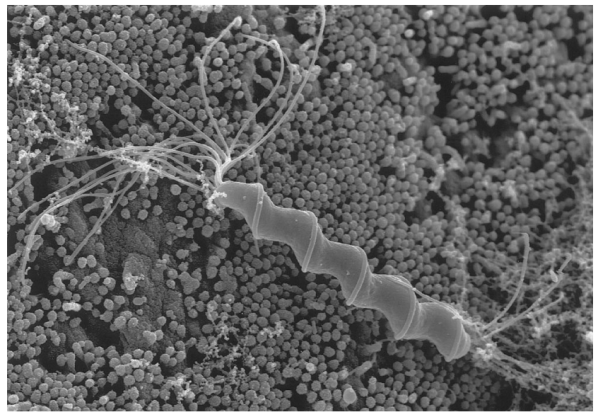
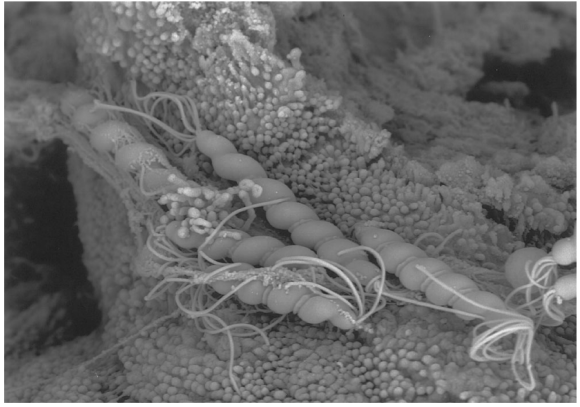
(a) Scanning electron microscopy of feline H. pylori found in a canine stomach biopsy. Multiple flagella are visible at both ends, as well as a single periplasmic fibre at the top of the spirochete (courtesy of Dr. M. Stoffel, Veterinary Anatomy, Bern, Switzerland);
(b) Scanning electron microscopic observation of multiple Helicobacter heimannii in a canine stomach biopsy. There is a small fibre in the valley of the spirochete and multiple flagella were found at both poles (courtesy of Dr M. Stoffel, Veterinary Anatomy, Bern, Switzerland).
Numerous reports have proposed putative mechanisms by which H. pylori alters gastric physiological mechanisms, including inducing gastritis through behaviours such as disrupting the gastric mucosal barrier, disrupting phospholipases, secreting vacuolar cytotoxins, and inducing apoptosis, or by altering the gastric secretory axis, reducing somatostatin release, inducing hypergastrinemia, and decreasing parietal cell reactivity, thereby inducing gastritis.
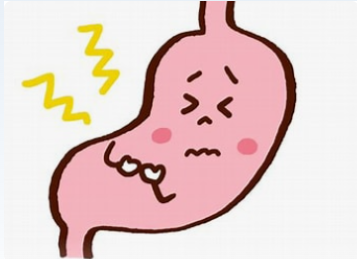
In pet dogs and cats, the prevalence of Helicobacter gastricus is greater than 70%, and the pathogenic role of Helicobacter has not been clearly established. The evidence in favour of an association of gastritis with H. pylori in cats is stronger in dogs than in cats, because gastritis in dogs is associated with glandular degeneration, lymphoid follicular hyperplasia, and mononuclear inflammation, whereas cats infected with H. pylori often develop more severe gastritis. Infected dogs show varying degrees of glandular degeneration, circulating anti-Helicobacter antibodies and lymphoid follicles compared to uninfected dogs [1].
Dogs and cats infected with Helicobacter pylori will show clinical symptoms such as depression, abdominal pain, vomiting, and even vomiting blood, which seriously affects normal life. Therefore, it is necessary to solve the problem of H. pylori infection in dogs and cats.
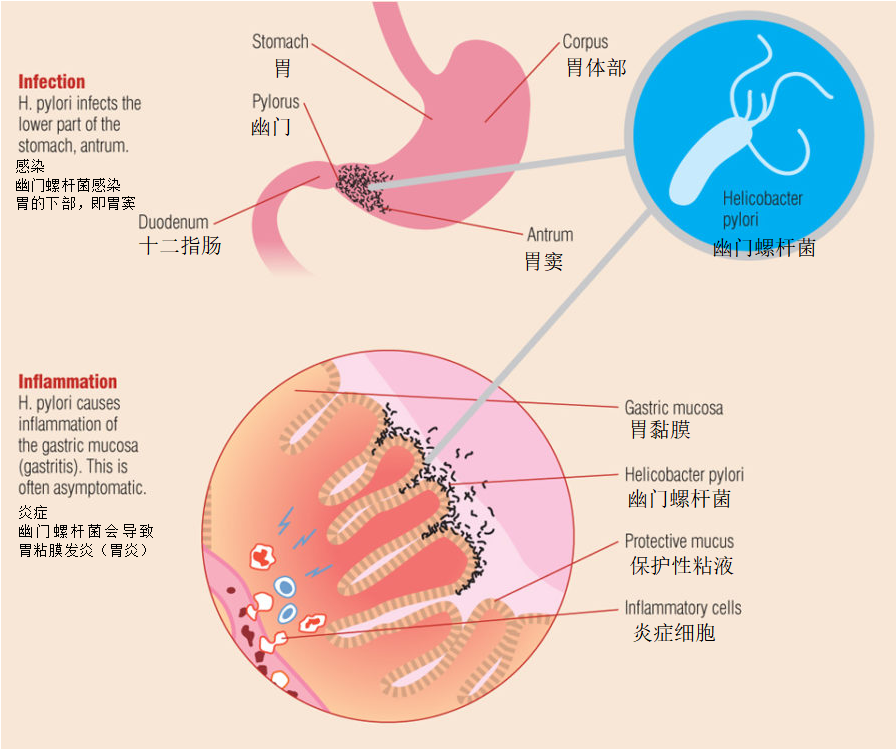
China is rich in seaweed resources, and fucoidan is mainly derived from brown algae, which is a class of polysaccharides containing sulfuric acid groups and has a wide range of biological functions.
It has been found that fucoidan, as a purely natural ingredient, not only inhibits the growth of Helicobacter pylori and prevents it from adhering to and invading the gastric mucosa, but also has a variety of functions, such as antioxidant, antitumour, enhancement of body immunity, antimicrobial, and improvement of the gastrointestinal tract [2].
Infection with H. pylori often leads to gastritis, gastric ulcers, and even stomach cancer. Antibiotics are commonly used because they are effective in inhibiting or killing the Helicobacter pylori bacteria, which can largely reduce the incidence of gastric adenomas and gastric cancer. However, over the years, H. pylori has become resistant to many clinically used antibiotics, and the crisis of antibiotic failure has gradually come to the forefront in the treatment of H. pylori, whereas fucoidan significantly reduces H. pylori infections without the development of drug resistance.
Fucoidan prevents H. pylori from adhering to host cells, thereby reducing the rate of infection by 60%. Mechanistically, fucoidan interfered with the adhesion of H. pylori BabA and AlpA (adhesins) and significantly reduced the total number of H. pylori and the levels of IL-6 and TNF-α (pro-inflammatory cytokines) in vivo, which suggests that fucoidan is an effective ingredient that can protect the stomach from H. pylori infection by decreasing the total number of H. pylori and alleviating the inflammation [3]. Additionally, fucoidan can also fight against H. pylori infestation by boosting immunity on the side of the stomach lining.
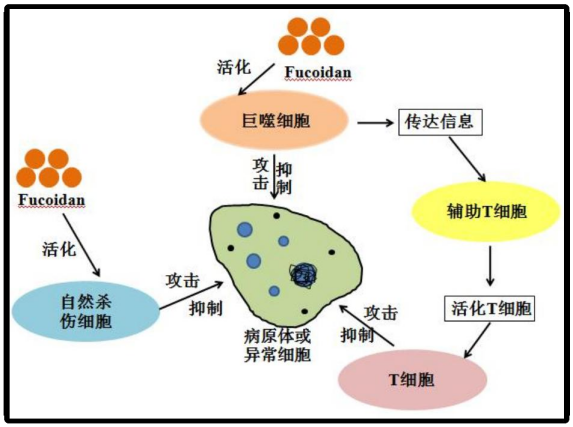
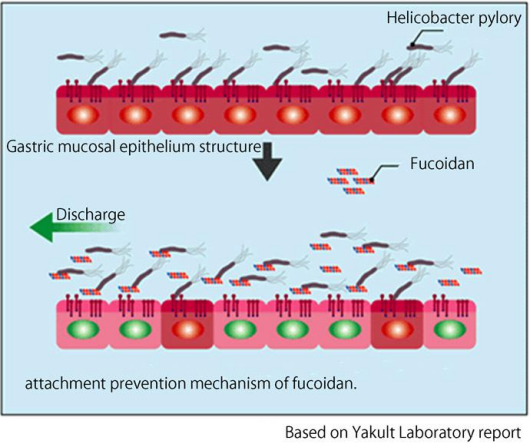
In short, fucoidan attacks Helicobacter pylori both inside and outside, causing it to be attacked from the back: in the gastric juice side, fucoidan directly interacts with Helicobacter pylori through bioaffinity adsorption to achieve the effect of inhibition and elimination; in the side of the gastric wall, fucoidan activates the immunity of the side of the gastric wall, so as to make the side of the gastric wall more powerful in its immune attack against Helicobacter pylori.
The patented fucoidan combined with quadruple therapy has an outstanding clearance rate. "The State Key Laboratory of Seaweed Active Substances and the Affiliated Hospital of Qingdao University jointly conducted a clinical trial on the removal of Helicobacter pylori by the patented fucoidan (Clinical Trial Approval No.: QYFYKYLL271311920):
The clearance rate with patented fucoidan alone (77.3%) was close to that of standard quadruple therapy (84.6%), and the clearance rate with patented fucoidan in combination with quadruple therapy was outstanding (100%); The application of patented fucoidan combined with tetrodrugs significantly improved digestive symptoms and significantly reduced the incidence of adverse effects compared with tetrodrugs alone for the eradication of H. pylori.
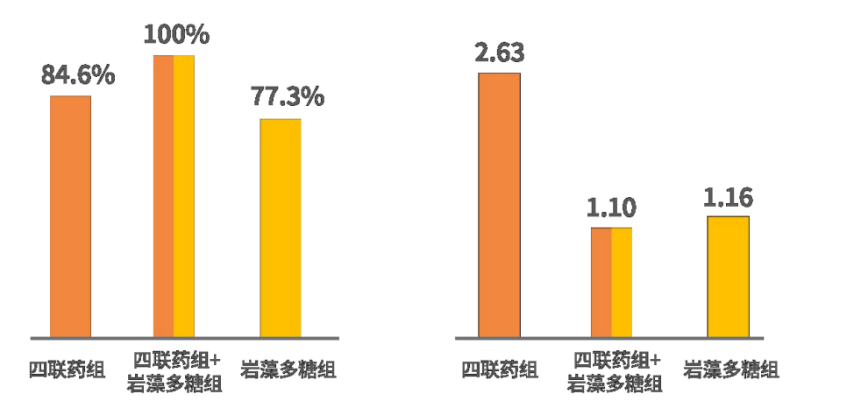
Quadruple pill pill group Quadruple drug group + fucoidan group Fucoidan group
Note: The quadruple drug group consists of proton pump inhibitor (PPI) + bismuth + 2 antimicrobial drugs, which are mainly used for the treatment of Helicobacter pylori infection.
The patented fucoidan can help the body to resist the attack of Helicobacter pylori in addition to repairing gastric mucosal damage. Some experiments on the evaluation of patent fucoidan on gastric mucous membrane protection show that: taking patent fucoidan for 30 days can protect gastric mucous membrane and inhibit gastric mucous membrane damage, and long-term use of patent fucoidan does not have any adverse effect on the weight gain of diseased animals.
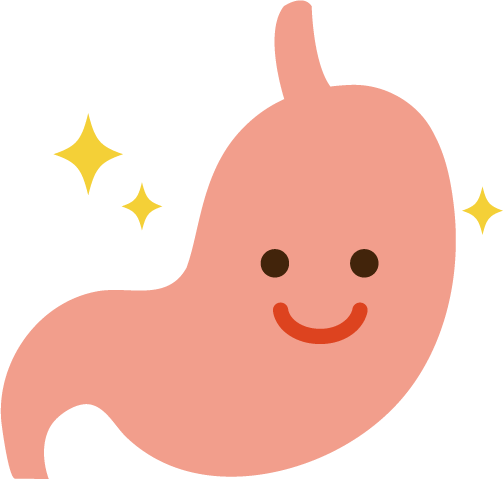
In addition, the patented fucoidan can improve intestinal inflammation and constipation. A study by Professor Ryuji Takeda's team at Kansai University of Welfare Sciences in Japan showed that the number of days of defecation, the number of bowel movements, the softness and hardness indices of defecation and the volume of defecation of constipated patients improved significantly after taking the patented fucoidan for 4 weeks, and the effect was even more pronounced after taking the patented fucoidan for 8 weeks.

Fucoidan can effectively address H. pylori infection in dogs and cats. As an all-natural ingredient, the use of fucoidan to treat H. pylori infection is safer, with fewer side effects, and can be used on a long-term basis. The combination of fucoidan and quadruple drug group can achieve 100 per cent clearance of Helicobacter pylori, and at the same time effectively reduce the dosage and adverse reactions of quadruple drug group, which is a new choice for the treatment of Helicobacter pylori. At the same time, fucoidan can also promote gastric mucosa repair, improve enteritis, constipation, repair the gastrointestinal function of dogs and cats, for dogs and cats gastrointestinal protection.
reference:
[1] Neiger R, Simpson KW. Helicobacter infection in dogs and cats: facts and fiction. J Vet Intern Med. 2000;14(2):125-133. doi:10.1892/0891-6640(2000)014<0125:iidacf>2.3.co;2
[2] Chen A, Liu Y, Zhang T, et al. Chain conformation, mucoadhesive properties of fucoidan in the gastrointestinal tract and its effects on the gut microbiota. Carbohydr Polym. 2023;304:120460. doi:10.1016/j.carbpol.2022.120460
[3] Chen BR, Li WM, Li TL, Chan YL, Wu CJ. Fucoidan from Sargassum hemiphyllum inhibits infection and inflammation of Helicobacter pylori. Sci Rep. 2022;12(1):429. Published 2022 Jan 10. doi:10.1038/s41598-021-04151-5